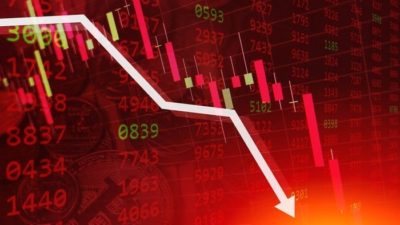This article was originally published on Fool.com. All figures quoted in US dollars unless otherwise stated.
Tron (CRYPTO: TRX) has always been a polarizing crypto, primarily due to its associations with controversial cryptocurrency entrepreneur Justin Sun, who launched Tron back in 2017. But it's getting increasingly difficult to ignore the fact that Tron has gained users and posted new transaction activity at an impressive rate throughout 2022. Could Tron finally be ready to stake its claim as a worthy Ethereum (CRYPTO: ETH) rival?
The most recent news that has investors buzzing is the announcement that Tron is now the official blockchain of the Caribbean island nation of Dominica. As a result of this, Tron will be issuing the first-ever government-backed crypto fan token. And Tron will also officially become legal tender in Dominica. There are also suggestions in the crypto community that Tron might leverage this deal to make similar deals around the Caribbean and in Latin America. If so, that would be huge in terms of Tron gaining worldwide market acceptance. So is this controversial crypto finally a buy?
Tron by the numbers
Analyzing Tron is like peeling back the layers of an onion. If you only look at the surface numbers, everything seems fantastic. Tron now has an impressive 115 million users worldwide, and has processed more than 4 billion transactions since it was founded back in 2017. Total Value Locked (TVL), which is a measure of how much activity is taking place on the blockchain, is an impressive $5.5 billion. That ranks Tron No. 2 among all blockchains, trailing only Ethereum.
In terms of overall market capitalization, Tron now ranks No. 15 in the world. It is now bigger than Avalanche (CRYPTO: AVAX), for example, which was once considered to be one of Ethereum's major rivals. Add in the fact that the price of Tron has been surprisingly resilient in 2022, and it might appear that Tron has finally emerged as a worthy rival to Ethereum, which is down nearly 70% for the year.
Red flags?
But there are definitely some red flags about Tron. For example, there have been persistent concerns about the new Tron algorithmic stablecoin ever since it launched in May. At the time, the new stablecoin was being favorably compared to the algorithmic stablecoin for the Terra (CRYPTO: LUNA) ecosystem. A stablecoin is supposed to avoid crypto market volatility, usually via a peg to a currency like the U.S. dollar. But Terra proved to be anything but stable and it collapsed, wiping out investors. In June, the Tron algorithmic stablecoin briefly lost its peg to the U.S. dollar, causing alarm bells to go off in the heads of crypto investors everywhere. What if Tron was the new Terra?
And then there are all the opaque, behind-the-scenes dealings involving Justin Sun, who continues to be a major influence on Tron. You don't have to dig very deep to find some very salacious (and potentially defamatory) allegations about Justin Sun that involve the FBI, IRS, and Securities and Exchange Commission. Even if you ignore these claims, there are very real concerns that Tron might be a "security" and not a "cryptocurrency." As a result, Tron is not available for trading on every major cryptocurrency exchange.
Sun left Tron at the end of 2021 to become Grenada's ambassador to the World Trade Organization (WTO). This, apparently, is what has led to Tron's sudden prominence in the Caribbean region in 2022. Sun is continuing to give interviews about Tron and promote it on social media, even while fulfilling his diplomatic duties.
Is Tron a buy?
That's why I'm discounting the value of the news surrounding Tron's expansion into the Caribbean and Latin America. I love the idea of creating "fan tokens" for tourism destinations, and it's exciting that sovereign states around the world are experimenting with cryptocurrencies as legal tender. But somehow, deep down, something just doesn't add up when it comes to Tron. Maybe it has to do with the fact that Tron seems to be facing an enormous amount of legal and regulatory uncertainty in both the U.S. and China, where it conducted its initial coin offering (ICO).
For now, I cannot recommend Tron as a buy. While the recent price of $0.06 may seem enticing, I think that there are several other Layer 1 blockchain projects that are much better set up to become "Ethereum-killers" in the future. Investing in cryptocurrencies always involves risk and volatility, and investing in Tron -- even at a bargain-basement price -- seems to come with an extra measure of both.
This article was originally published on Fool.com. All figures quoted in US dollars unless otherwise stated.









